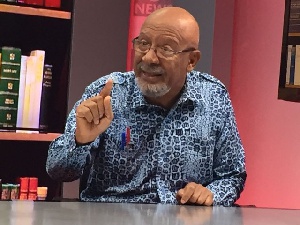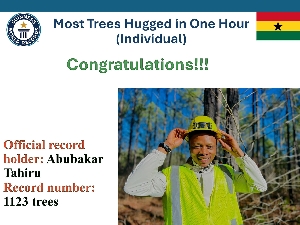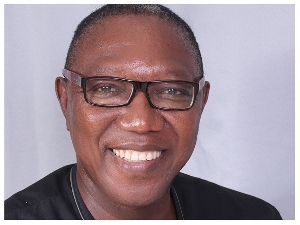Serious advocacy needed to promote a reading culture in Ghana - Mass illiteracy and national progress do not mix
Through the years, various studies related to the field of education have matured and provided appreciable standards across countries.
International best practices, for example, have shed the light through which we may view and support the growth and intelligence of children and the youth.
In my own experience teaching various nationalities in the United States - plus the different ethnic groups across Ghana over the past twenty years – it’s clear that the innate cognitive abilities of people are not that different. It’s all in the commitment, expertise and preparation in how we raise children and the youth to excel and become the very best they could be intellectually and practically.
GNAPS theme for 2018
In supporting the GNAPS theme for promoting a reading culture in Ghana, I noted that the ability of students to use “reading process skills effectively is essential to educational achievement in all subject areas. It is important for the development of individual talents and interests as well as for participation in a society which relies on the printed word as a prime means of communication. Equal educational opportunity is only attainable when students have been provided with a level of reading skills instruction commensurate with the demands placed upon all in the content classes.”
In other words, the success or achievement in every single subject studied depended on one’s ability to read and understand what one reads.
K.B. Asante’s advocacy
Quality education is not a one-man-show; it ought to embody everybody’s radiant hope and focus to help create the kind of future we want for the country. And we expect chiefs, politicians, government officials, parents, and teachers to lead the way. K.B. Asante cautioned (in an April 17, 1995 article): “What should worry us more in Ghana [is] the large numbers of semi-illiterates turned out of our junior secondary schools. Semi-illiterates who have been thrown out of their traditional environment are fertile material for demagogues and fanatics. Our main task therefore is to pursue [the] strengthening of basic education vigorously.”
With the political support for education in Ghana – through the advocacy of President Nana Akufo-Addo, the whole country ought to be seen supporting quality education across board including both the free Senior High School (SHS) and Technical and Vocational Education Training (TVET).
The power of reading
People who haven’t thought about it much tend to underestimate or belittle the power of reading. The poverty of mind is caused by illiteracy in all its forms, including semi-illiteracy. Ignorance, they say, is bliss. But in the 21st century, that monster ignorance is a kiss of death! Poverty, filth, diseases, and deaths on our roads and exploding gas tanks do not happen by themselves: they are caused!
How illogical it is – for example - to hope that brilliant minds, lacking the competencies in reading, can excel in practical skills that follow method and instruction! How can one access the internet to be enlightened in one’s trade without the ability to read and relate to others in different parts of the world?
How can one be stimulated to think, compare or contrast views without the power to decode the written word and make meaning of it? How does one broaden an outlook on any subject matter, or any business of interest without the ability to read? How on earth do we move Ghana from a poor status into one of enrichment and progress? The questions are the answers!
Breda Atta-Quayson
A reader forwarded the following: “A lot of people can’t read. Of those who can read, many don’t. Of the few who do read, many don’t read much. Of the handful who read much, some can’t analyse.” Another sent this: “If you want to hide something from the African, put it in a book.”
When these serious concerns arise, I tend to remember Breda. As I wrote for his obituary (January 23, 2017), “He was so disheartened that people did not read as much as they should to learn from history. Education meant so much to him that he encouraged me to write a column to inform and inspire the nation and the youth … We seemed to have the same tastes: love of journalism, and the writing and reading of literature, history, biographies, etc … We’d call each other often and discuss the books on our reading lists.”
The country that stopped reading
In a column (March 18, 2013) titled, “The country that stopped reading revisited”, I noted that, “Many of life’s needs may be fulfilled through reading. Children, adolescents, and adults may read to meet the practical demands of everyday living; to carry on occupational activities; to further their recreational interests; to be civic minded; to satisfy intellectual curiosity; to understand current events; to gain desired information; and to satisfy spiritual and emotional needs. Yet we often fail to develop lasting interests in reading. Since unused potential depreciates the human being, we need to instill in children a love of reading; and the earlier the better.”
And where “parents or teachers themselves are either indifferent to the right learning environment or – by their apathy and carelessness - are antagonistic to quality learning, they create some severe lifelong deficiencies for the youth. Such handicaps are like gaping scars and are most difficult to cleanse.”













